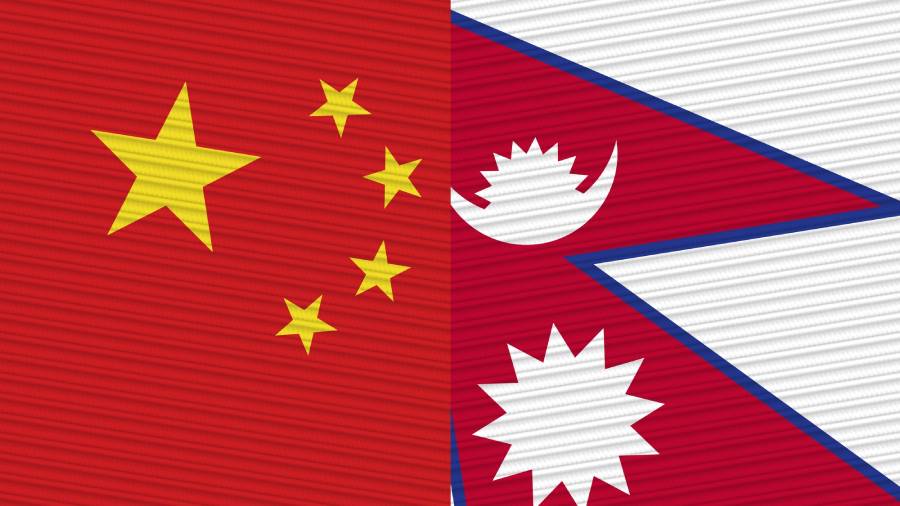Wang Yi in Nepal: Progress Made on Free Trade, Infrastructure Projects, and Cross-Border Energy Networks
We brief the outcomes of Chinese Foreign Minister Wang Yi’s three-day visit to Nepal and how this will impact BRI and other China-backed projects.

China’s Foreign Minister Wang Yi, fresh from South Asian meetings in Islamabad, Kabul, and New Delhi, held discussions with Nepal’s Foreign Minister Narayan Khadka to look at ways to increase cooperation. Trade and investment has slowed significantly with the border between the two countries closed due to COVID-19 concerns.
During negotiations, the Nepali side insisted on grants and that if a loan had to be taken, it should be a “soft loan” or “concessional loan”. A soft or concessional loan comes with minimal interest rate, while Beijing often offers loans under the BRI at a higher interest rate with a short payback period.
Discussions centered around financing of Belt and Road Initiative (BRI) projects, with Nepal preferring to be provided with grants rather than loans for financial assistance, details which will need to be worked out prior to further BRI investments being made. Nepal would also appreciate project execution bids to be open to all qualified, not just Chinese firms.
“And we have also set a cap,” said a senior Nepali Finance Ministry official. “Soft loans for the projects financed under the BRI must not have an interest rate more than 2 percent. Similarly, the repayment time should be as per the international standard or as per the interest rate imposed by the World Bank, the Asian Development Bank and others.”
The Nepali side has also maintained that projects under BRI should be open to all for execution, meaning the right to bid cannot be reserved exclusively for Chinese firms.
Beijing has been trying to push some projects under the BRI in Nepal, especially in the wake of Nepal’s ratification of the Millennium Challenge Corporation, a US$500 million US grant for building electricity transmission lines and improving roads.
Besides the above discussions, Nepal and China signed nine agreements, including an agreement on economic and technical cooperation as well as a technical assistance scheme for China-aided feasibility study of the China-Nepal cross-border project in Nepal.

In terms of projects, much is on the table but has yet to be agreed on, with financing a key concern. For example, the feasibility study of the Kerung-Kathmandu railway is being planned but will take another four years for the detailed project report to be prepared. If completed, that would extend rail connectivity between China’s national rail at the border with Nepal at Kerung, West Tibet, with Kathmandu. This is a 170 km distance, but requires extensive engineering skills as the terrain is steep and prone to earthquakes. Costs are estimated at some US$5.5 billion, a huge amount for Nepal.
In time, that could link from Kathmandu to another proposed railway line to Bihar, in India, giving the prospect of China-India national rail connectivity via Nepal – quite a ride. But financing and terms need to be worked out first, prior to engagement.
The two sides also signed a cooperation agreement on the feasibility study of China-Nepal power grid interconnections where China will finance the new alignment of the Ratamate-Rasuwagadhi-Kerung transmission line.
The two sides also signed a protocol on the safety and health conditions of haylage export from Nepal to China, while a letter of exchange on duty-free treatment for 98 percent of imported goods into China was also signed.
Besides, the Chinese side handed over the certificate of the Araniko Highway Maintenance Project (Phase III). The highway was damaged by floods and landslide as well as the 2015 earthquake.
Another COVID agreement was part of the package, under which China will donate an additional 4 million Sinovac doses to Nepal. Also on the Health BRI, a protocol on sending a Chinese medical team to work in Nepal at BP Koirala Memorial Cancer Hospital was agreed.
Finally, China stated it would honor the terms of a 2019 Nepali grant of some US$94.25 million it had pledged for 2020, but had been postponed due to the pandemic. Both sides are now expected to work how and where the funds will be allocated for Nepalese projects.
Related Reading
About Us
India Briefing is produced by Dezan Shira & Associates. The firm assists foreign investors throughout Asia from offices across the world, including in Delhi and Mumbai. Readers may write to india@dezshira.com for more support on doing business in in India.
We also maintain offices or have alliance partners assisting foreign investors in Indonesia, Singapore, Vietnam, Philippines, Malaysia, Thailand, Italy, Germany, and the United States, in addition to practices in Bangladesh and Russia.
- Previous Article China Strikes Conciliatory Tone With India As New Asian Geopolitical Alliances Begin To Emerge In Wake Of Russian Issues
- Next Article How to Structure a Salary in India: Key Components








